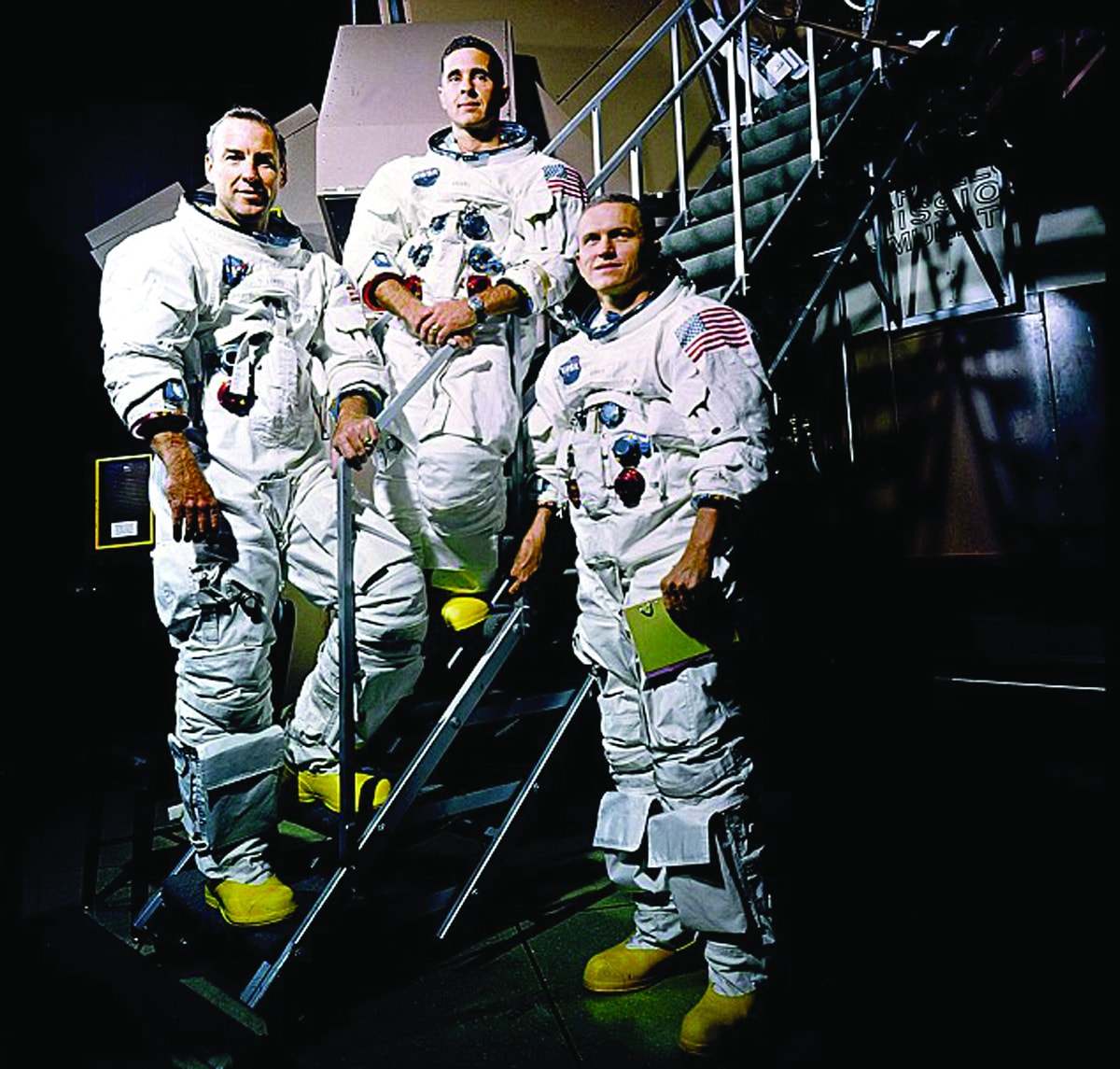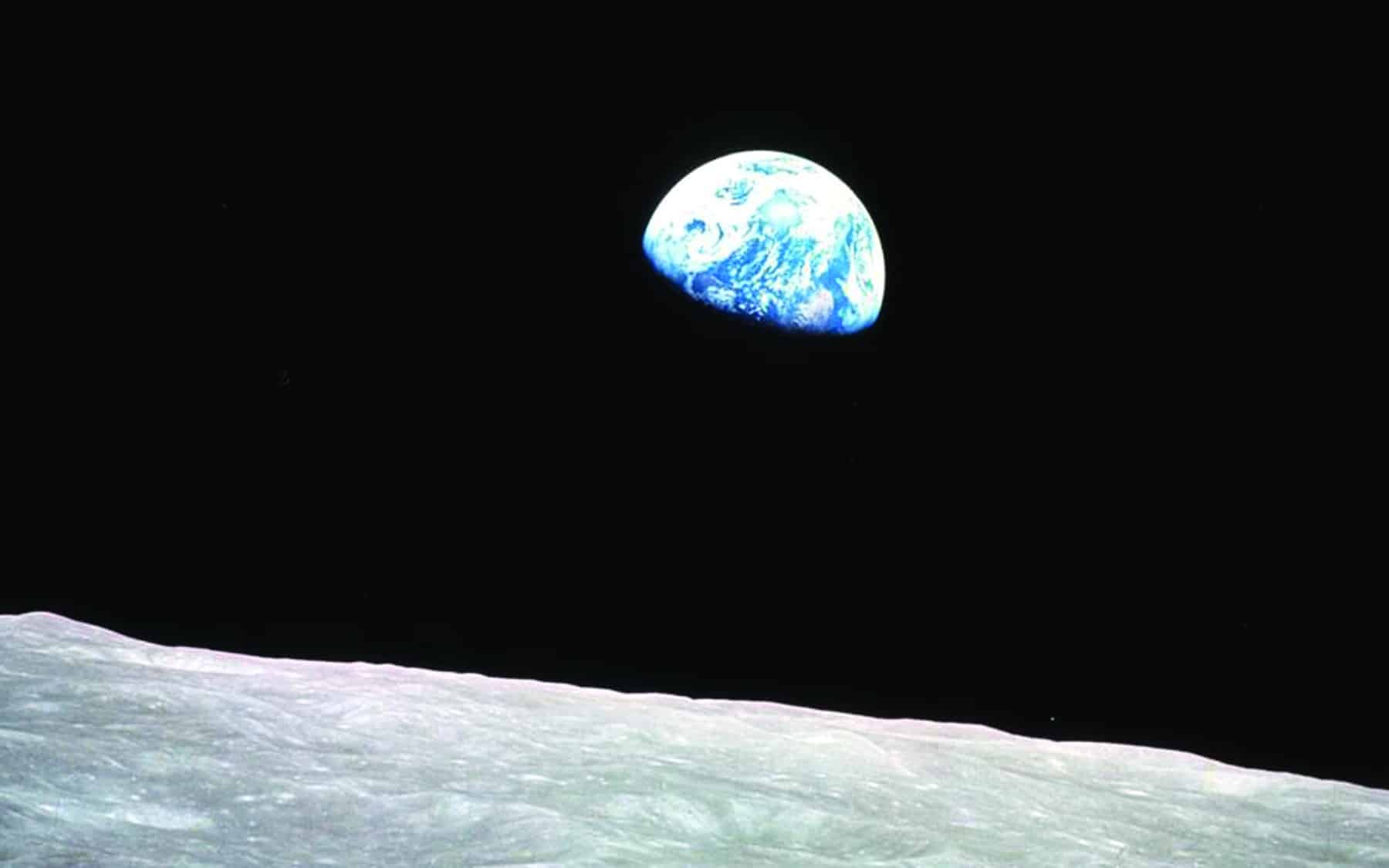By Will Hall, Message Editor
ALEXANDRIA (LBM) – Violence in the streets, racial tensions and a clash in social values mark a divide in the nation in 2018, but such turmoil also framed 1968, when the world was rocked by upheavals on a number of levels.
Like now, there was a sense of “heaviness” across the country and the globe.
But as the year drew to a close, NASA sent three men into space – the first time humans had broken free of the earth’s gravitational pull – mesmerizing the world as their space capsule circled the moon ten times as a prelude mission to a lunar landing by Apollo 11 the next year.

The crew of Air Force Colonel Frank Borman (mission commander), Navy Captain James A. Lovell Jr. (command module pilot) and Air Force Major William A. Anders (lunar module pilot) made six live broadcasts from takeoff Dec. 21 until splashdown Dec. 27. But perhaps the most memorable of these came on Christmas Eve, during the ninth orbit of the mission.
Borman began the morning with some observations about the moon’s “vast loneliness,” calling it “awe-inspiring.”
Then toward the end of the broadcast, the three astronauts shared another lasting impression with the world — “our feeling of closeness to the Creator of all things,” Borman would later say in his autobiography, “Countdown.”
Lovell held a piece of fireproof paper and a light, while Anders told the world, “We are approaching lunar sunrise. For the people back on the earth, the crew of Apollo 8 has a message that we would like to send to you.”
With the onboard television camera focused on the moon, Anders began reading:
“In the beginning God created the heaven and the earth. And the earth was without form, and void; and darkness was upon the face of the deep. And the Spirit of God moved upon the face of the waters. And God said, Let there be light: and there was light. And God saw the light, that it was good: and God divided the light from the darkness.” (Genesis 1:1-4)
Lovell continued sharing the passage, saying:
“And God called the light Day, and the darkness he called Night. And the evening and the morning were the first day. And God said, Let there be a firmament in the midst of the waters, and let it divide the waters from the waters. And God made the firmament, and divided the waters which were under the firmament from the waters which were above the firmament: and it was so. And God called the firmament Heaven. And the evening and the morning were the second day.” (Genesis 1:5-8)
Then Borman brought the time of reflection to a close:
“And God said, Let the waters under the heaven be gathered together unto one place, and let the dry land appear: and it was so. And God called the dry land Earth; and the gathering together of the waters called the Seas: and God saw that it was good.” (Genesis 1:9-10)
Borman also closed the broadcast, wishing everyone “Merry Christmas” and saying, “God bless all of you, all of you on the good earth.”
Neil Armstrong’s statement, “One small step for man, one giant leap for mankind,” during his historic walk on the moon the next year, might be best remembered among phrases uttered during the Apollo moon missions.
But 50 years ago, the watching world, steeped in crises and chaos, heard a profound message from the orbit of the moon, a message of everlasting hope found in “the Creator of all things.”





